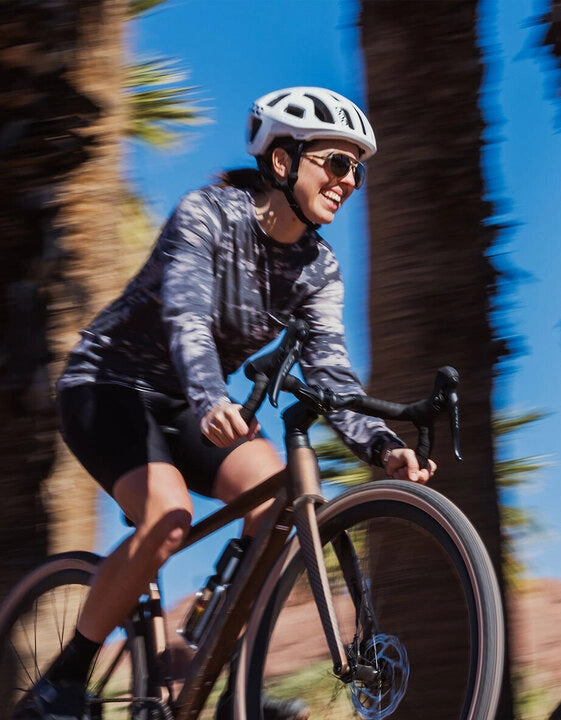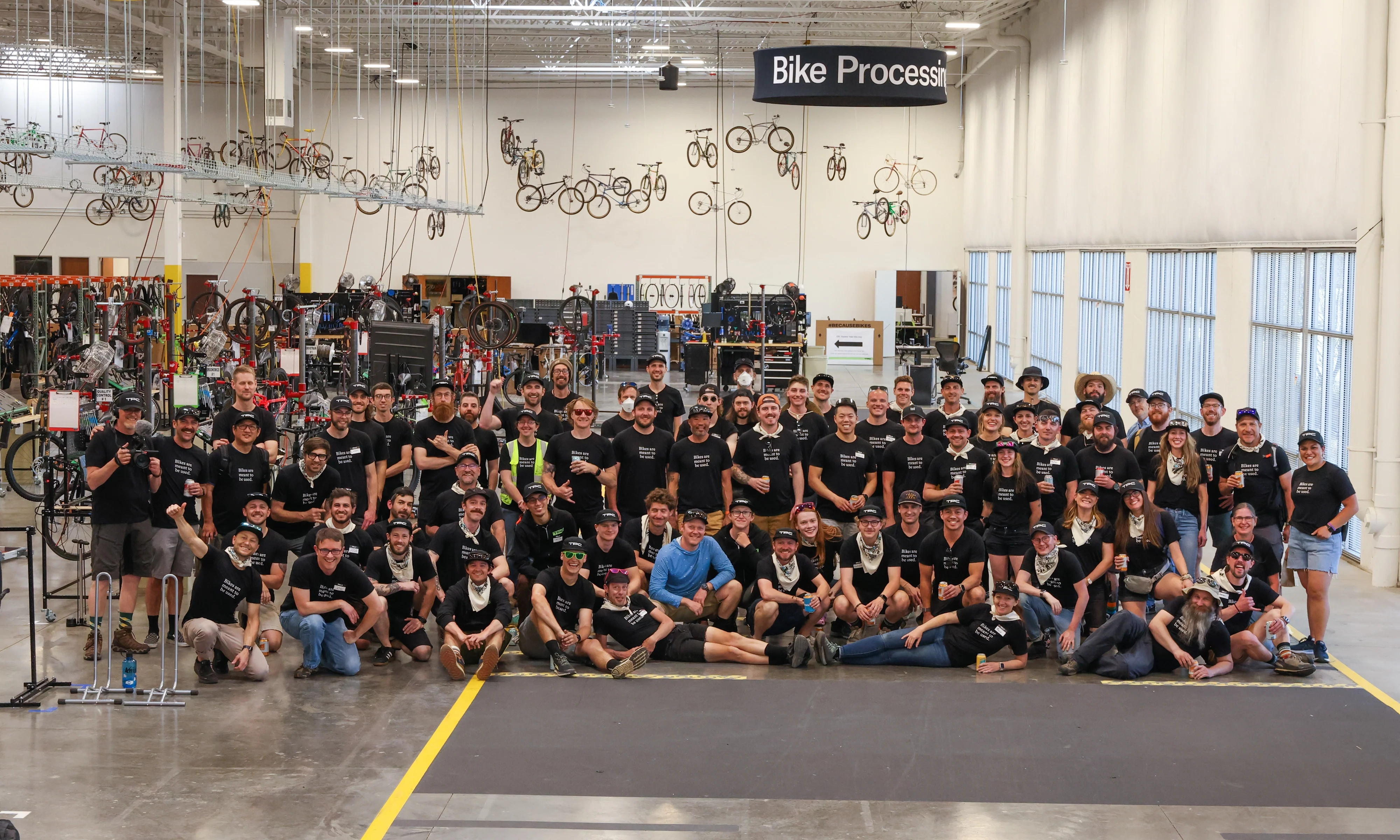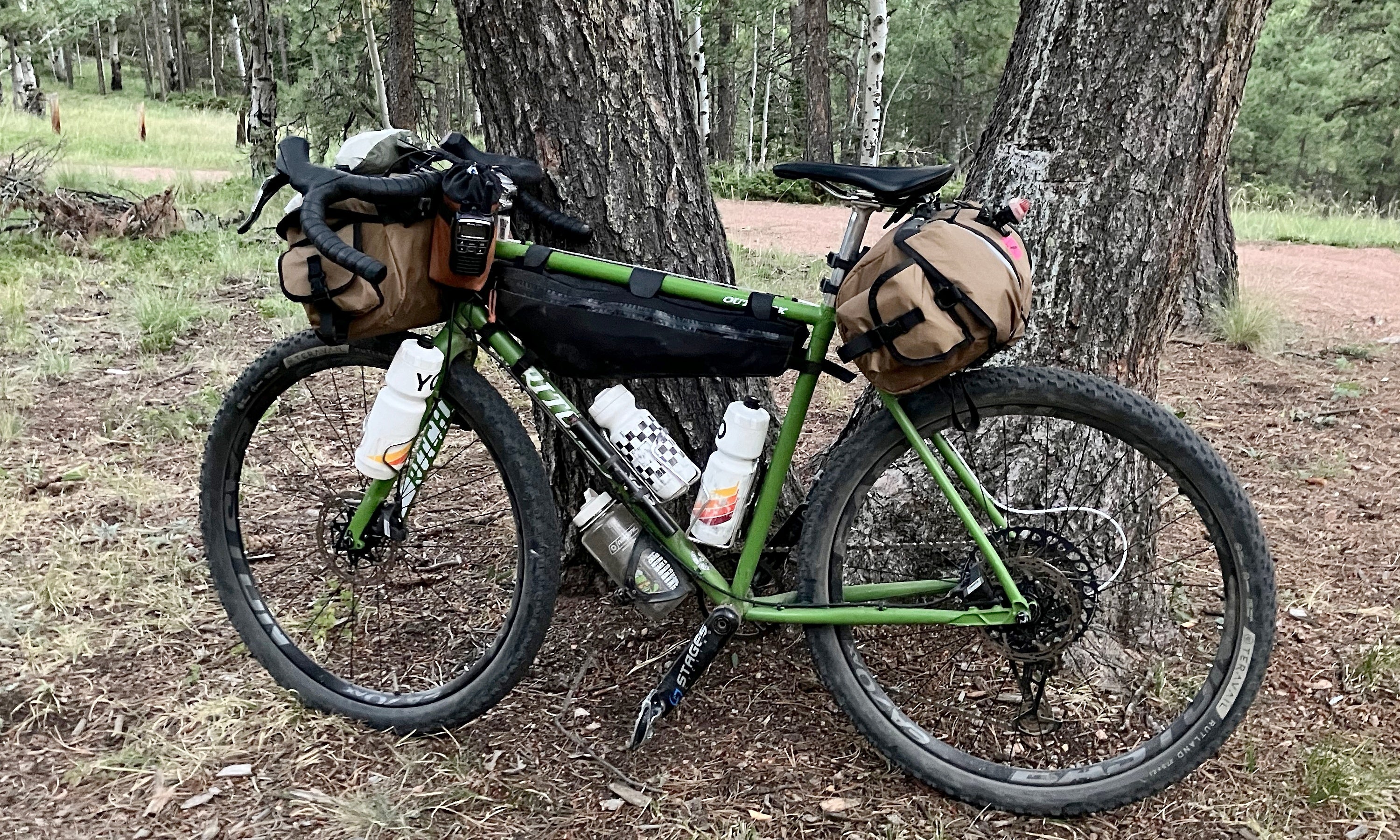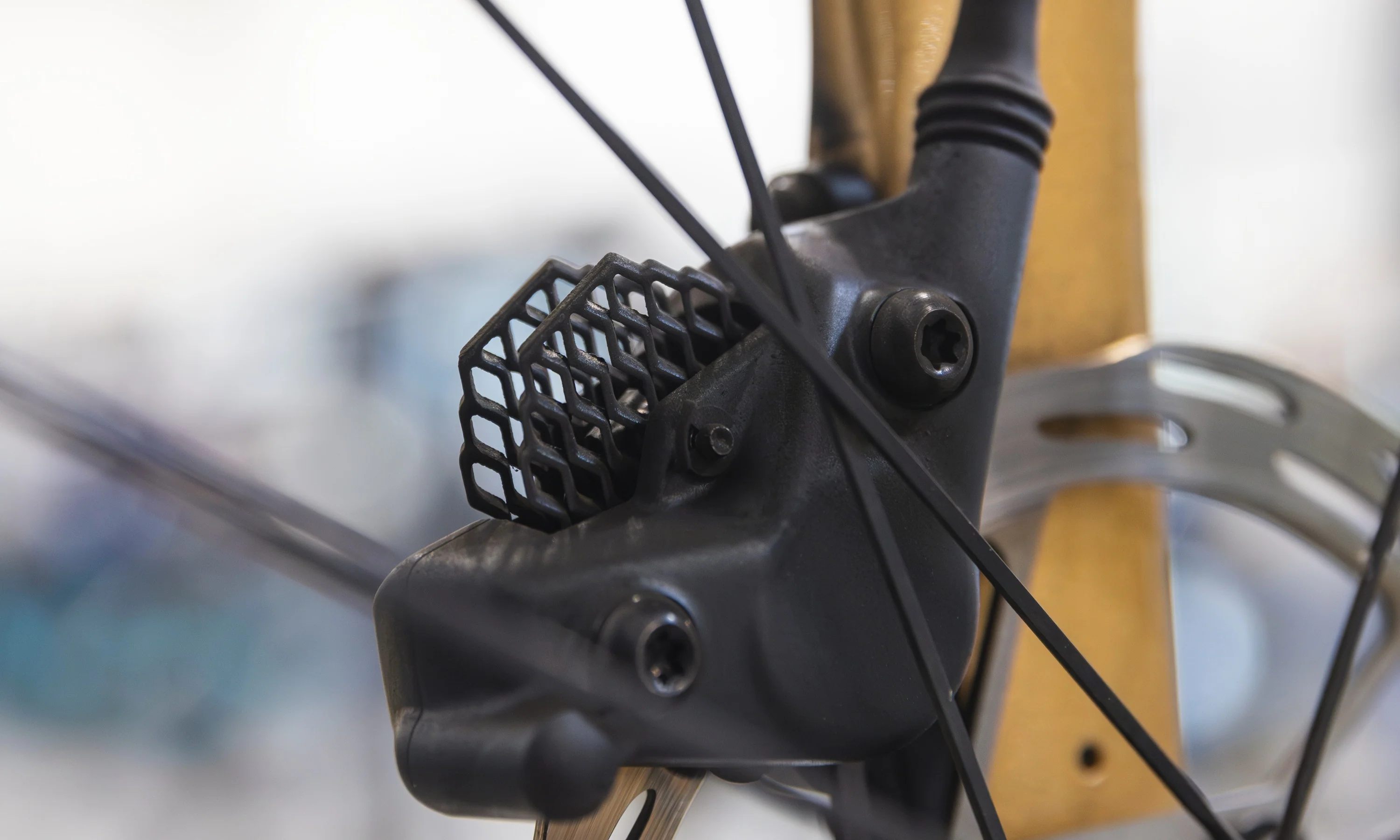Rob Walker got a call from his good friend, Derek: “Hey man, get $800.00 cash and meet me in an hour.” Concerned that Derek was in trouble; Walker took out the money and met him. Much to his surprise, Derek was standing next to a sleek, electric lime green, full-suspension mountain bike. “You’ve gotten too big, bro. You gotta buy this bike and start riding.” Walker was over 300 pounds. But he wasn’t always heavy for his size.

Bicycles changed Rob Walker's life. Photo: Chris H. Hadgis
Walker was a decorated, hard-working varsity basketball player. He watched basketball, talked about basketball, dreamed about basketball. Basketball was life. When he got into Franklin Pierce University in Rindge, New Hampshire, he was determined to walk-on to its Division II basketball team. He tried out. And a week later, he was hit with harsh reality. He got cut.
So, Walker tried every intramural sport the university offered: volleyball, indoor soccer, dodgeball, even oozeball, a.k.a. mud-volleyball. But he found intramural sports lacking when it came to the team component that drove him in basketball. Walker didn’t know who he was without basketball. Eventually, he sought out happiness in other ways. He drank. He partied. He ate. He lost himself.
“My identity was dead,” he said. On the outside, he appeared carefree and happy, the life of any party. Inside, he crumbled. As if his body took on the weight of his sadness, he went from 185 to 250 pounds in two years.
After graduating from Franklin Pierce with a business marketing degree, Walker started working for a mortgage lender. He liked his bosses and excelled. He was quickly promoted to a contract service manager position. But being great at his job put people out of their homes.
It ate away at Walker's conscience. To numb his guilt, he ate more, drank more, and started smoking.
Eventually, the pounds added up. His breathing became labored. He developed asthma. Daily activities like climbing stairs got increasingly difficult. His face grew so swollen that it was an effort to keep his eyes open. He had massive headaches and numbness in his hands and feet.
High blood pressure, liver issues, and spikes in his heart rate landed him in the hospital. Walker stepped on the scale and the nurses took his vital signs. He was 320 pounds. He was shocked and mortified. His cardiologist delivered the news that he was pre-diabetic and morbidly obese. If he didn’t lose weight, his heart wouldn’t be able to function under pressure. The blood vessels would constrict and burst. He could have a heart attack and die.
And then came the surprise call from Derek. Relieved that his friend wasn’t in trouble and grateful for his caring gesture, Walker climbed on the green mountain bike. It had been built for cross-country racing and was probably worth $4,000. On his first ride, it broke under his weight.
When Walker walked into the Claremont Cycle Depot asking for help, the service person working there said, "You do know that bikes have weight limits, right? This bike — no bike — is built for your size.”
He walked out, feeling as broken as his bike and completely out of place. “I wanted to ride but I felt like I didn’t belong.”

The downhill racing bug bit Rob Walker as he got more experienced with mountain biking. Photo courtesy Rob Walker.
A mountain biking friend who worked as a car mechanic came to Walker's rescue. He patched up the bike with car parts; washers, bolts, and a coil shock: not pretty, truly a Franken-bike, but ridable.
Walker began to wake up at 4:30 a.m. to ride before work. He was too embarrassed by his slow speed to ride with other people.
He bought a used road bike and a bike trainer, so he could ride indoors unseen and improve his fitness. But this bike hadn’t been fortified with car parts. The first day, he set up the trainer, and got on to ride. The chain snapped, and he fell to the ground. He had broken another bike. “That was the most epic crash, riding inside my house,” he remembers. Walker repaired the bike as quickly as possible so he could keep riding.
Within five months, he dropped 40 pounds. He felt lighter, his breathing improved, his sleep improved, and he wanted more out of his rides. He drank less and ate more conscientiously. He planned his work day around lunch rides or visits to his friend’s bike shop, Mason Racing Cycles in Lebanon, New Hampshire. He fell in love with everything about bikes. He became so knowledgeable that people thought he worked in the bike shop. His reputation of offering helpful, warm, honest advice caught on.
“In 2011, downhill [racing] bit hard,” said Walker. “Downhill only lasts three minutes but it is the hardest sprint you can imagine on really difficult terrain.” At one of his first local, open pro-amateur downhill races in 2012, Highland MTB Park Grand Prix, in Northfield, New Hampshire, Walker waited patiently in the starting gate area for his start time. As he was visualizing the lines he was about to run, another rider tapped him on the shoulder. “Hey man, can I go in front of you?” The other, slimmer rider thought Walker would be slow due to his size. “I don’t want to run you over.”
Walker won the race and was offered two sponsorships.
Photo courtesy Rob Walker.
In 2016, Walker was still working at the mortgage service provider but, “putting 110% of my bike-stoke energy into my buddy's bike shop, Mason Racing.” He enjoyed visiting other bike shops too, “most times for no reason other than to be around bikes and bike-minded people.” One day, he got a call from a bike shop general manager, asking hinm to replace him at a bike shop in New Hampshire.
The bike shop in need of a new manager was the Claremont Cycle Depot; the same shop that had turned him away 10 years earlier when he needed help.
Despite a $20,000 pay cut, he took the position. People doubted his ability to manage the shop initially. At 37, Walker was inexperienced. Several employees promptly left. But the ones that stayed and others that came aboard melded into the strong spokes that keep the shop rolling today.
“The cycling industry seemed so far outside of something I could step into – until I walked into the shop and started working with people. I was able to act as a guide to make the riding experience better for people and that is awesome; that is a driver, a motivator, a positive, warm and fuzzy feeling every time. So, I listen, learn and lead to the best of my ability. The other key piece is the folks around me: from the people who dragged me into cycling, to the people who stand beside me at work who share the same passion and desire to make the experience better for others.”

Photo courtesy Rob Walker.
Now 41 and 200 pounds, Walker is no longer morbidly obese, but he still feels overweight for his 5’10 frame. And he’s determined to race again despite some serious crashes. He’s motivated to stay healthy and live the active lifestyle that he loves: riding, managing the bike shop, building mountain bike trails, and inspiring others to ride.
Five years after he started managing the shop, a man walked into Claremont Cycle Depot holding a broken bike. He was over 300 pounds. Walker's heart sank. Words could not convey how much he empathized with the customer. Due to the pandemic, Walker could not track down a bike that would work for the customer anytime soon. But he listened. He understood the desire and the deep, medical necessity to ride as soon as possible. When facing morbid obesity, the cure can’t wait. So, he searched the inventory of nearby shops and found a bike that would work. Walker was the first shop manager to take the time to listen and offer help without turning him away, so the customer wanted to wait and purchase a bike from his shop no matter the delay.
Walker shook his head. “Go, get that bike. Start riding today and we’ll be here to service it anytime you need. But just get the bike.” 













